Art and Music Therapy for Addiction Treatment in Texas
Integrative therapies are becoming widely used in addiction recovery and at Cypress Lake Recovery in Texas, we incorporate music and art therapy to help our patients open up to addiction treatment and recovery. In a study done by the National Institute of Health, only about 36.8% of recovery programs for drugs and alcohol abuse use art therapy, and only 14.7% use music therapy separately; combined use of these treatments are implemented about 12% of the time in addiction recovery.
Based on the evidence and our experiences incorporating these integrative therapies, we believe music and art therapy are of great importance to our patients and an inherent part of our holistic approach. Contact us today to learn more.

Addiction Reduces Social Skills, Emotional Expression, and the Mind-Body Connection
We treat various types of addictions, including alcohol, crack cocaine, and prescription drugs. Regardless of the addiction type, whether it’s a mind altering substance or behavior, the same thread connects them all. Addiction and dependency can reduce social skills significantly, since addicted people tend to pull away from friends and family to focus on the addictive drug or behavior. Addiction keeps the individual focused on one goal: to get their fix.
When we provide addiction treatment in Texas, we work to help our patients heal and rebuild their social skills. In therapy, individuals learn about the addictive mindset and how to recognize it within themselves.
When a person is affected by addiction, isolation and depression disorders may take over. This can lead to a person feeling hopeless and completely alone. It becomes easier to focus on the negative, which can perpetuate our dependency on drugs and alcohol to numb the mind. The mind-body connection is completely severed so that health is no longer a concern.
Contact Our Admissions Team Today

Art and Music Therapy
Art and music therapies can be combined or used separately to motivate patients to be active in therapy and community work. Art and music therapy can help to massage the words out of each patient comfortably.
Testimonials
![]()
![]()
![]()
![]()
![]()
Regina
I am so happy that I chose Cypress to begin my recovery. I have suffered for years from depression, anxiety, panic disorder, and PTSD. The programs that are offered here at Cypress have been truly phenomenal in helping me recover. I also appreciated the professional staff that are here on duty 24/7, which helps create a safe environment. Cypress Lake Recovery uses effective “one on one” methods that meet each person’s individual needs because they evaluate and have a better understanding of your personal traumatic experiences. Thanks Sabino, I am truly grateful to you and the Cypress family.
![]()
![]()
![]()
![]()
![]()
J.A.
A beautiful facility! Staff sets the tone and kindness that residents easily follow. Thank you, Cypress Lake Recovery!
![]()
![]()
![]()
![]()
![]()
Pamela
The program at Cypress Lake Recovery works! I emerged from an accumulation of unrecognized emotions, issues of trust, and unresolved grief and loss. 35-days of effective integration of customized quality therapy reconnected my mind, body, spirit, and I am worth it! I had masked emotions and hurtful events for decades with alcohol. At Cypress Lake Recovery I safely focused deep within to unleash harmful secrets and self-degradation. Tools of recovery were practiced, not just presented. Integrative therapies were tailored to my circumstances, thus were effective. This residential program is like no other. For me, Cypress Lake Recovery delivered what was professed. I am forever grateful for this gift of healing.
![]()
![]()
![]()
![]()
![]()
Mike
Life changing experience. Wonderful staff. Wonderful program. Thanks for everything!
![]()
![]()
![]()
![]()
![]()
Darcy
It was great to begin my recovery in a group environment with so many knowledgeable nurses, therapists, BHT’s, and others around for support. The equine therapy, challenge course, family week, and daily therapies all work together seamlessly, allowing me to leave Sabino as a healthier and stronger person!
How does art therapy help addiction treatment?
Art therapy is shown to be effective in treating trauma victims and those suffering from addiction. Learning to work with our hands and create things that can display what we are unable may be the first step in dealing with internal conflict. Individual therapy and 12-step programs may work in conjunction with art therapy. During the process of creating art, individuals can participate more directly in the therapeutic process.
As an individuals works with their hands in a creative space, it’s possible to relieve stress and open up any other emotions locked away. Art therapy allows individuals to step away their overactive minds and focus on the task at hand. This is the practice of mindfulness, which is an active form of meditation frequently used in treating addiction. Art therapy provides an outlet for stimulation of the mind. Much of the groundwork for one-on-one counseling sessions is found in art therapy.
Art therapy activities may include:
- Painting
- Drawing
- Creating sculptures
- Paper mache
- Pottery
Nationally Recognized & Accredited
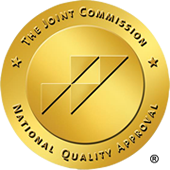
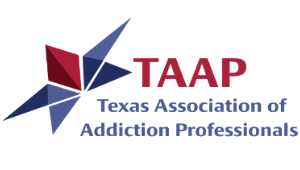
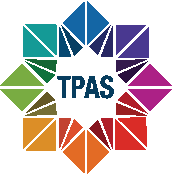
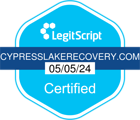
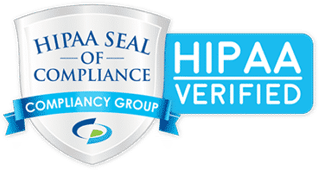

How does music therapy work in recovery?
Music therapy involves incorporating written lyrics with original music that works with coping skills and builds confidence within our patients. Learning a new skill (such as playing music or reading sheet music) allows addicted people to practice critical thinking. We encourage our patients to look deeper into the core of their addiction and provide a self-analysis through musical expression.
The field of music therapy to heal the body and soul has proven psychological healing properties. Individuals with depression and anxiety disorders tend to find music therapy to be one of the most relaxing treatments.
Music therapy activities may include:
- Writing music
- Playing music
- Listening to music
- Creating lyrics
- Analyzing lyrics
- Teaching music to your peers
- Singing



